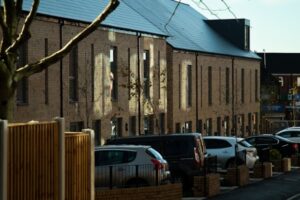A major new programme designed to make Leeds a fairer and healthier place to live has been launched by the cities local authority.
Announced at the beginning of this week by a world-renowned academic, researcher and campaigner, Sir Michael Marmot, the two-year project which was created by Leeds City Council and University College London’s Institute of Health Equity (IHE) is aimed at tackling health inequalities and the part they play in causing illness and lowered life expectancy.
Using evidence gathered over many years by IHE Director, Professor Sir Michael Marmot, the programme is set to ensure that people’s ‘social detriments’ – the circumstances in which they are born, grow, live, work and age – give them the right building blocks for good health.
Key policy objectives include giving every child the best start in life, delivering fair employment for all, and creating healthy and sustainable communities with good quality housing.
During his keynote address which was delivered before Sir Michael launched the new plan, the Professor said he was ‘absolutely delighted’ to be working with Leeds and ‘excited’ to see what the next two years would bring.
He told the audience: ‘People’s usual default position when thinking about health inequalities is, ‘you must be talking about inequalities of access to healthcare’. No, we’re not – inequalities of access to care are extremely important, but we are concerned with the social determinants.
‘If you are rich, it doesn’t much matter where you live. The poorer you are, the more it matters, the bigger the disadvantage of living in the North East, North West, Yorkshire and the Humber and beyond.’
Sir Michael’s thinking – highlighted by his landmark UK government-commissioned report Fair Society, Healthy Lives – has shaped public policy in countries as far afield as Holland, Norway, and Brazil.
In Leeds, the Marmot programme will both complement and build upon the work already being done locally to improve the health of people of all backgrounds, particularly those from disadvantaged communities. The council’s existing Health and Wellbeing Strategy sets out an ambition to bring the fastest change to those most in need, for example through the implementation of housing projects providing affordable, warm, and secure homes.
However, research has shown that, like other big cities, Leeds continues to be affected by health inequalities which were deepened by COVID-19. Since the pandemic sizable differences have been noticed in life expectancy between its richest and poorest neighbourhoods.
Councillor Salma Arif, Leeds City Council’s Executive Member for Adult Social Care, Public Health and Active Lifestyles, said: ‘Our new partnership with Sir Michael and the Institute of Health Equity is a really significant development, and one that I’m sure will have a positive impact on many lives.
‘We’re proud of the work we have done over the years to try to ensure Leeds is a city where no one gets left behind, but we also know there is more to do.
‘This collaboration with Sir Michael and his team will mean we are better placed than ever to achieve our goal of reducing health inequality, building an inclusive economy and creating safer, stronger communities.’
Image: Benjamin Elliott

















Leave a Reply